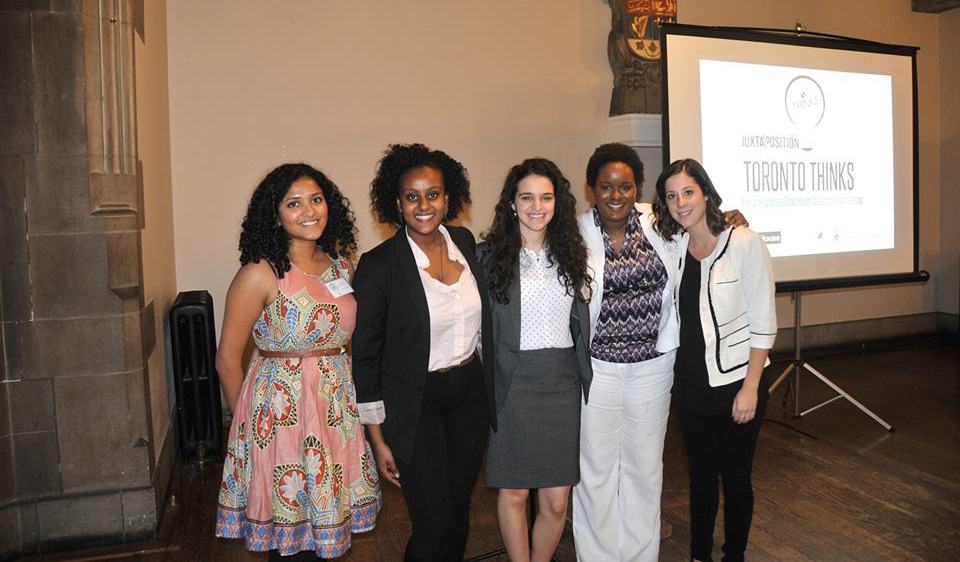Juxtaposition, the University of Toronto’s global health magazine, hosted its first annual Toronto Thinks competition on November 8 and 9. Toronto Thinks aims to further expand awareness of global health. The winners of the competition were Nour Bakhache, Danielle Smalling, and Betty Yibrehu.
According to India Burton, one of the Toronto Thinks co-directors, the opportunities for global health are limited in undergraduate studies.
Sarindi Aryasinghe, the other co-director, discussed her plans to “Make U of T a central hub for other universities to connect with us.” Many students seem to think that their only option for involvement in the global community is to go abroad. “This allows them to interact with the same issues and use the same skills they would employ abroad, here at home,” said Aryasinghe.
The competitors were asked to prepare arguments for properly dealing with traffic incidents in Ghana. Eight groups competed, representing a total of 25 undergraduate students, competed. Bakhache, Smalling, and Yibrerhu’s arguments mainly focused on building a community-based approach to this issue.
The winners cited proper work ethic as the key to their victory in this competition. “You really have to commit yourself and the team to the project, and say ‘we’re not going to bed, until we do this, because this is what needs to be done,’” stated Yibrehu, who is studying physiology, pharmacology, and classical civilizations.
“I think it was a phenomenal event,” said Smalling, who is majoring in human biology, global health, and psychology. She then stated that the event could have been improved had they had an extra day to prepare.
The team will be leaving for Emory University, Atlanta in May for the 2014 International Emory Global Health Case Competition. Last year, students from John Hopkins University won the top prize, $6,000.


